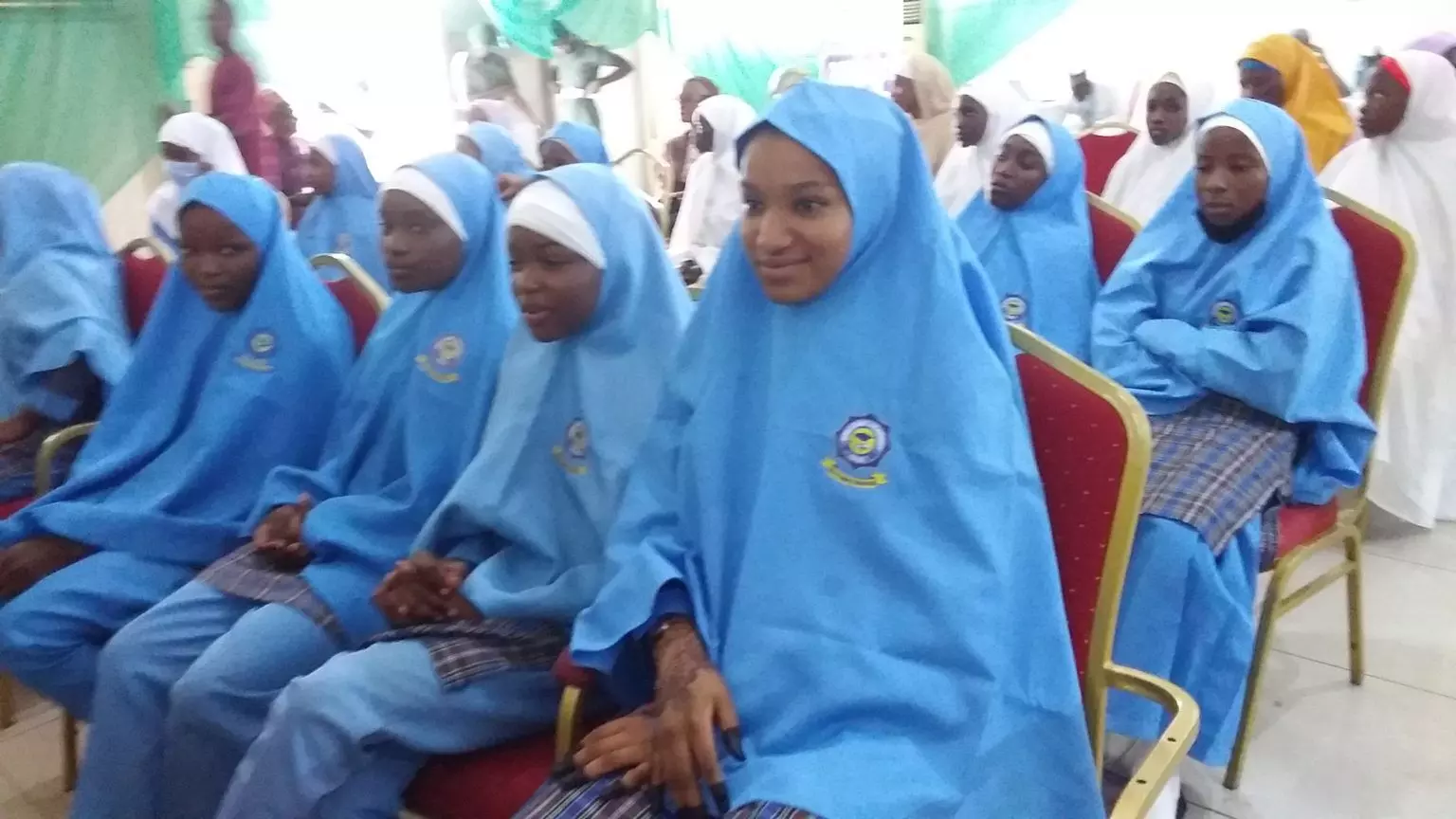Ganduje lauds UNICEF, FCDO as 10-year girls education programme ends

A Cross section of school girls who benefitted from UNICEF’S Girls Education intervention project in Kano
Gov Abdullahi Ganduje of Kano State, has commended the United Nations Children's Fund (UNICEF) and Foreign Commonwealth Development Office (FCDO) for their intervention project on Girls education project (GEP3) in Kano.
Ganduje, represented by the state Commissioner for Education, Abdullahi Yan Shana, gave the commendation at the official closing of the 10-year intervention project GEP3 in Kano on Monday.
He said that the project had indeed improved the capacity of teachers to deliver effective learning and improved governance to strengthen girls education.
According to him, "The 2017/2018 annual schools census of the primary school pupils stood at 3,807,588 with 1,9778, 884 as girls.
"But in 2019/2020, the Annual School Census indicates 3,933,572 in which 2,050,309 were girls. This signifies that there was 96.5 per cent increase of girls enrolment and retention in the state."
Ganduje specifically commended some component of the intervention such as community engagement of mothers association.
He explained that the intervention had indeed gingered and sensitised rural women to the benefits of girls education.
In his remarks, The Chief of Field Office, UNICEF Kano Field Office, Mr Rahama Farah, pledged continuous partnership with the state government in providing educational support for all.
He said that the 10-year project had invested heavily in teacher development which improved the learning of teachers in Integrated Qur'anic and Islamic schools.
Farah said that the trained teachers demonstrated the minimum teaching competencies to about 30 per cent against the 2 per cent baseline impacting on learning outcomes.
According to him, "in spite of achievements of the project, there is still need for more investment in education and girls education in Nigeria and Kano, to ensure that all children had equal opportunity in education.
"Kano has the highest transition rate to junior secondary schools of only 28 per cent, which means that we need to work hard to remove the bottlenecks that prevented positive transition," Farah said.
The Chief also commended the Foreign Commonwealth and Development Office (FCDO), for their financial investment of $108,493,125, 871 in girls education programme in Northern Nigeria.
Supreme reports that the Girls Education Project (GEP3) is a 10 years intervention supported by the United Nations Children's Fund (UNICEF).
The project was implemented in partnership with the Federal and state ministries of education and other educational agencies in Kano and was funded by the UK government through the Foreign, Commonwealth and Development Office (FCDO).



